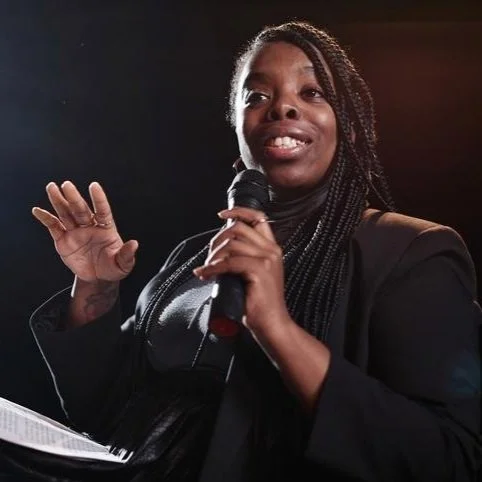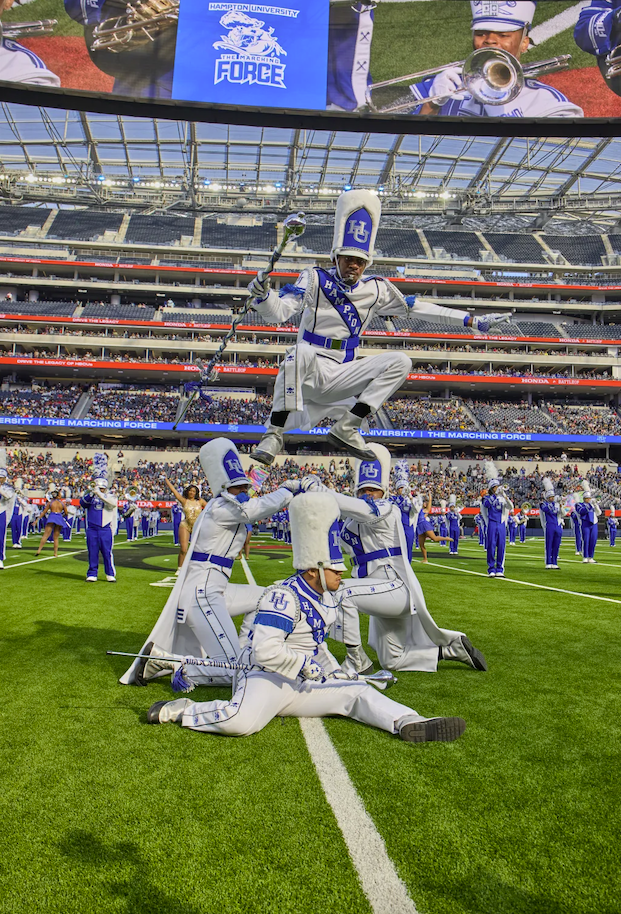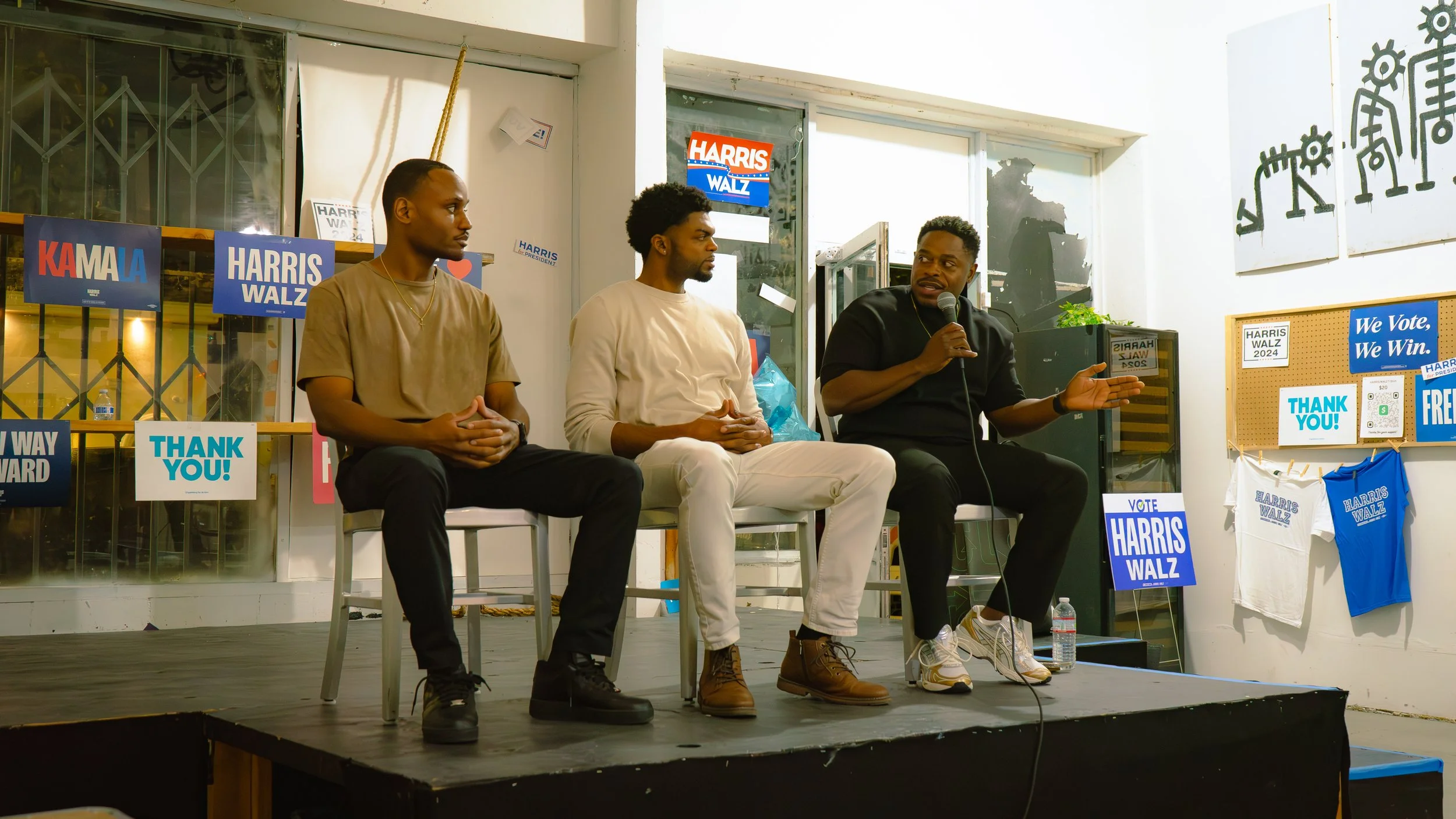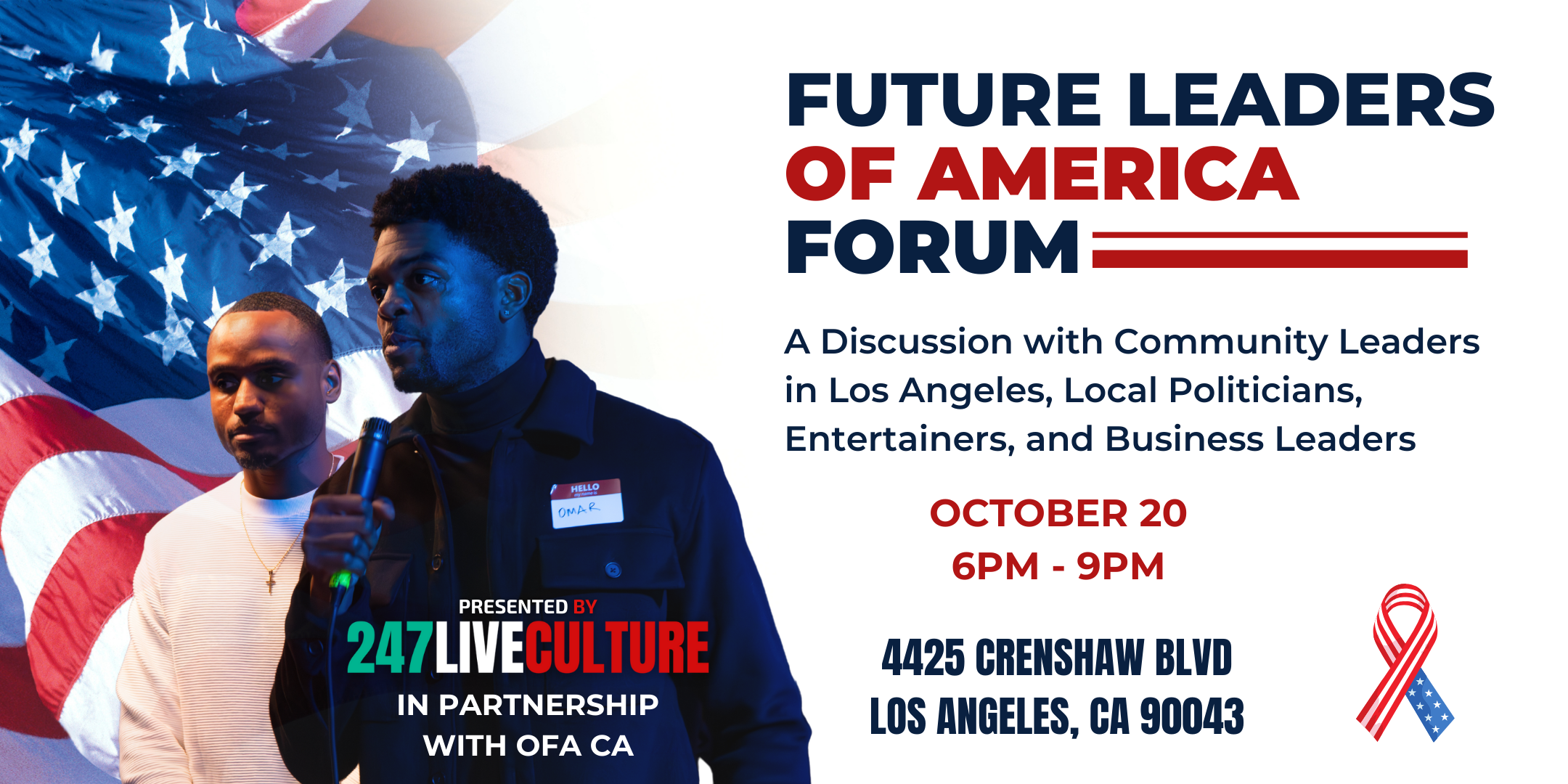Groovetime Dance App Aims To Help Bridge The Gap For Creators Of Color
Dissatisfaction among Black creators on Tik Tok has been brewing for quite some time due to the lack of credit for original content. Kwasi Ohene-Adu has created a dance app called Groovetime, made specifically for creators of color to have the ability to get paid for their content.
By: Alexis Oatman
Founder and creator Kwasi Ohene-Adu said he’d had a love of dance since he could remember.
Groovetime is an app designed to help people learn how to dance and help bridge the gap for dance creators, specifically creators of color who get paid for their content. Ohene-Adu said it acts almost like a coach in your pocket.
Hello, World!
Feel the music with every step and unleash your dance power all over the world 🕺 💃 #SeeYouAtDaTop #OwnyourMoves pic.twitter.com/IQAvxWgvAf
— Groovetime - Smart Dance Coach (@itsgroovetime) August 20, 2021
The experience will be specific to each dancer, like a marketplace, where they can charge subscribers for dance lessons, per move, if they want.
“It’s not just videos of people dancing and you following along, but we actually built technology that is able to use the camera on your device and give you pointers on how to improve,” Ohene-Adu said. “That’s totally unheard of in the dance space.”
Hard work comes in many forms, including dance creation. Celebrating the achievements and contributions of employees everywhere and our amazing custom choreographers 🕺 🕺 🔨 👩🎨 👨✈️ 👩🚒 🕵️♀️ #happylaborday #laborday #thankyou #appreciationpost #mondaythoughts pic.twitter.com/jmeup6p3cu
— Groovetime - Smart Dance Coach (@itsgroovetime) September 6, 2021
Groovetime also serves as a way to help address the social commentary around the Black TikTok dance creator strike that happened in July. Creators felt that they were not getting their just due when it comes to credit, according to NPR. Dissatisfaction among Black creators had been brewing for quite some time. Many felt that white creators were getting preferential treatment.
In March, TikTok star Addison Rae was invited to perform for Tonight Show with Jimmy Fallon. Rae performed a series of eight viral TikTok dances, none of which she created, while the original creators of those dances (most of whom were Black) were not even featured for a segment.
Ohene-Adu said there had been a long-standing issue with appropriating with dance even before Tik Tok.
Born in the UK and raised in Ghana, Ohene-Adu has been a part of several dance groups over his life, even having a short stint touring dance halls in Europe. He moved to the US in 2001 to attend Dartmouth College, where he studied computer science.
It was there he started forming the idea for Groovetime, even presenting the concept for his honor’s thesis.
“It was a very crazy idea at the time, still kinda is, but not as crazy as 18 years ago,” Ohene-Adu said.
He said it’s a significant disconnect between those who create content and them actually being able to benefit from it. He hopes Groovetime becomes a destination where music comes to dance and a place where dancers can earn royalties for dances they create and help them become tastemakers for culture.
Along with giving dancers the ability to sustain a stable living, Ohene-Adu said Groovetime would allow creators to have the opportunity to have equity in the company.
“As an artist, you can record an album and just reproduce it, and you can sleep and make money. Can’t really do that as a dancer. Dancers need retirement, and they need safety. They need to have a way to plan for their future,” Ohene-Adu said.
YOU MAY ALSO BE INTERESTED IN:
SHARE TO SOCIAL MEDIA
Crutches & Spice: How Activist Imani Barbarin is Changing Narratives Through TikTok
Imani Barbarin, known as @crutches_and_spice on TikTok is one of disability activism’s leading voices. Her popular videos begin with a single objective: having uncomfortable but productive conversations about the lack of intersectionality within social justice movements, and more particularly, the disability sphere. We discuss it here!
Imani Barbarin / Credit: Hannah Price
By: Alexis Oatman
Funny. Charismatic. Outspoken. That’s how some people may describe Imani Barbarin, one of disability activism’s leading voices. Barbarin, known as @crutches_and_spice on TikTok, always begins her popular videos with a single objective: having uncomfortable but productive conversations about the lack of intersectionality within social justice movements, and more particularly, the disability sphere. For instance, in one of her most recent videos, Barbarin explains how white people pick and choose when to be in solidarity with BIPOC, treating allyship as an option that can be revoked anytime. “If you’re not nice while asking for it, they have the option to tap out,” she says in the video. “Racism for them is a special interest; racism for you is your life.”
Barbarian has a keen knack for making challenging conversations digestible and accessible, whether she’s discussing ableism and white supremacy or pop culture. Though she may not be a formal educator, she’s still offering vital lessons. Her dry humor, which shines in every video, helps her message resonate, which is one of the reasons she’s garnered 150,000 followers and 6.4 million likes on TikTok and more than 100,000 followers on Twitter. During the past 16 months, TikTok broadened its reach through challenges and other entertaining bits, keeping more than 100 million users engaged throughout the pandemic and allowing some Black creators, including Barbarin and food influencer Tabitha Brown, to reach even new audiences.
As a fat, black, queer, disabled woman, her using her platform in this way is not only unheard of and long overdue. Barbarin has often pointed out how Black voices are silenced in this realm. However, this is nothing new for Black people: While we’re often the first people on the frontline to fight against inequality, our voices are often washed out by our white counterparts in what are supposedly “safe spaces.”
Navigating through multiple identities at once allows her authenticity to shine through and is why I think she connects so well with her fans.
Though Barbarin, who works as a communications manager, has been working within the disability movement for quite a long time, she knows all too well how Black people are intentionally silenced when they call out racism, homophobia, and ableism within the movement—and she now has the platform to push back.
Presently, the internet and social media have become an integral part of shifting cultural lexicons. Social media stars have been able to capitalize off their platforms and build an audience representative of whatever they choose. However, when we think of the phrase “influencer,” we need to think more profoundly about what these people are influencing the public to do. The content Barbarin is making opens up the space allowing allies and BIPOC to have those open and honest dialogues, but she does in as little as 15 seconds with her videos that are available for millions to share (and they do) with the touch of a finger.
Barbarin recently spoke out against Britney Spears and the controversy around her 13-year-long conservatorship in another TikTok video, noting the gaslighting that members from the disabled can feel from the non-disabled community. Spears conservatorship has opened up the gateway to conversations about how disabled people are treated and perceived in society.
“Nobody’s saying her situation is not horrific, but it’s not unique,” she says in the video. “This is something disabled people are scared of all the time.” she says in the video. Barbarin went on to explain how there can be many occurrences in which disabled people end up asking the wrong question "to the wrong person and wind up in a conservatorship or guardianship."
She made it clear that while the critics are dissecting the Spears situation and holding it up as some shocking example of celebrity injustice, "this could literally happen to anybody with a mental health diagnosis or not."
Barbarin’s now facing immense harassment, including being called racial slurs and being doxxed by trolls. Being a Black woman on the internet in the current social climate can be terrifying, especially if you’re strong-willed and have something to say. While Barbarin’s conversations prove necessary, it's not only sickening to the amount of abuse this opens her up to. These social media platforms often work as a breeding ground for racism, misogyny, and homophobia, allowing many of these troll accounts to go unchecked.
This shouldn't be surprising, though, unfortunately, Black women are among the most abused group on Twitter, according to data from Amnesty International, a global human rights organization based in the UK. Their data found that nearly 84 percent of Black women were more likely to be disproportionately targeted than their white counterparts. At least one in every ten tweets mentioning Black women was found to be abusive or problematic, compared to one in 15 for white women.
With her sheer will allowing her to push forward and continue making content despite harassment, Barbarin has made it abundantly clear that her identities are not optional and that the world needs to see and recognize her as a Black disabled woman.
By not identifying those things, people are not only marginalizing her experience but also putting her in harm’s way. “It’s important that people see and affirm me as a Black disabled woman because I have to move about in the world as such. By not recognizing those things, people are either isolating me or putting me in danger,” she said in a recent statement with VICE. “People who have never had to place qualifiers in their identity have never had to form a community to survive. People love to believe they aren’t defined by our identities or what we present to the world, but by the same breath with which they decry labels, we are able to find people who share ours.”
While many women on social media simply ignore trolls, this harassment can lead some to silence themselves or quit the platform altogether. A joint statement by the United Nations Special Rapporteurs on Violence against Women and Freedom of Expression revealed that the abuse women receive online can "chill and disrupt the online participation of women journalists, activists, human rights defenders, artists and other public figures and private persons."
Poet and author Maya Angelou describes courage as one of the most important of all virtues. Why? "Because without courage, you cannot practice any other virtue consistently," Angelou said. "You can practice any virtue erratically, but nothing consistently without courage." Barbarin has demonstrated courage not only in her existence but in her work. To grow as a society and get to the point of being post-racism, post-homophobia, and so on, we need to have those tough conversations. These types of discussions open minds and allow a realistic chance for growth. The best way to do this is by meeting people where they are.
Barbarin not only builds off her experience and expertise in communications to appeal to a broader audience, but she’s changing the narrative of how we view disability and open people’s eyes to the prevalent casual ableism in society today.
Barbarin’s capacity to stand so firmly in who she is, without fear or shame, is inspiring millions, and for a good reason. The social media star recently signed with a talent agency, so she’ll continue influencing people to think differently about how disabled people of color are excluded from the very movements intended to improve their lives. Barbarin is one of the most critical voices in the modern fight against injustice, and her millions of followers, myself included, we’ll be tuning in every step of the way.










